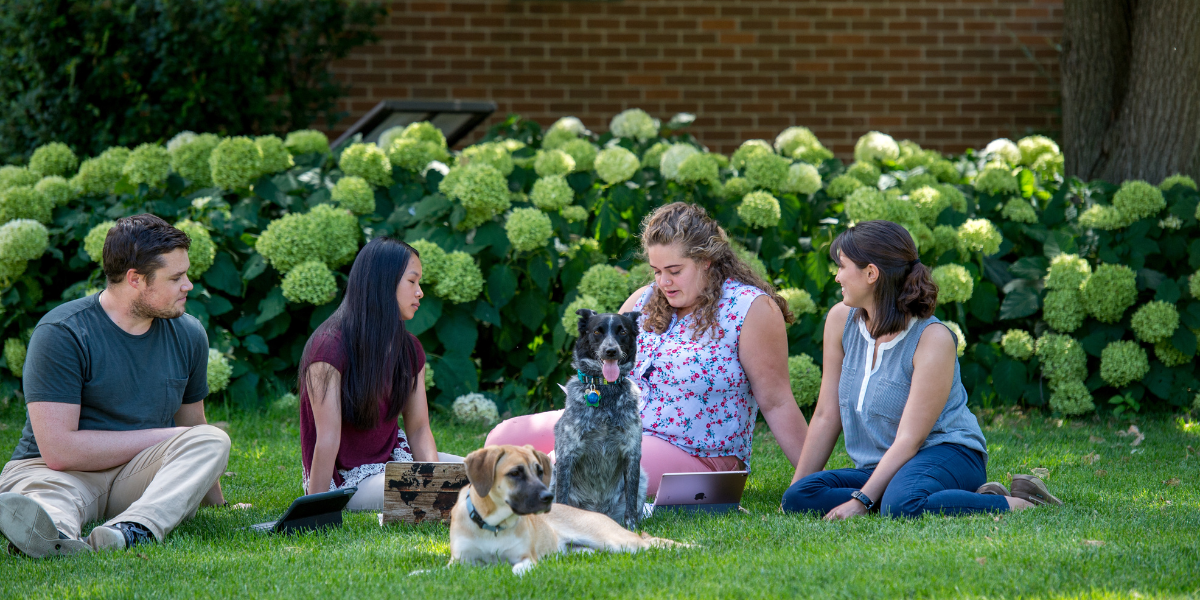
Doctors of Veterinary Medicine (DVM), with a degree from the University of Minnesota are filling a critical role as we confront conditions that challenge the health of animals, people and the environment. They’re leading efforts to reduce antimicrobial resistance. They’re discovering new therapies for cancer, arthritis and HIV through comparative medicine. And, they’re providing excellent and compassionate care for animals and their owners.
A distinctive student experience
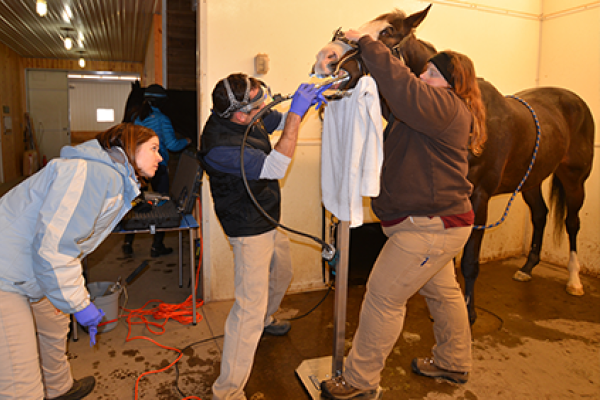
Hands-on experiential learning
Our specialized facilities provide a one-of-a-kind cluster of learning opportunities. The Veterinary Medical Center, the Veterinary Diagnostic Lab, the Leatherdale Equine Center, and The Raptor Center are all located on the St. Paul campus. Off-site partnerships include the Como Zoo, the Minnesota Zoo, the Wildlife Rehabilitation Center, Animal Humane Society, and the 6,000-cow John Fetrow Dairy Education Center.
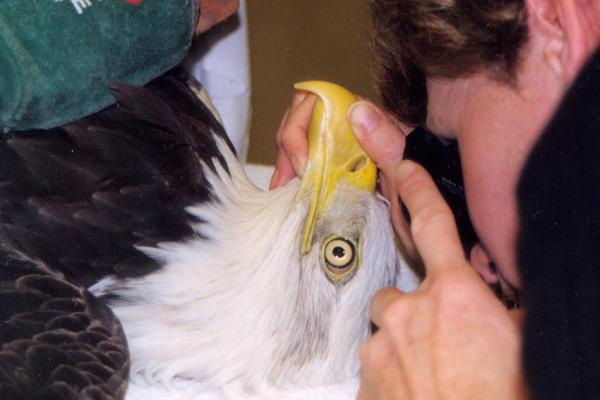
Access to specialized knowledge
Programs in food safety, public health, business, oncology, ecosystem health, zoo and alternative medicine give students opportunities to acquire specialized knowledge and skills to suit their career interests. Students choose their track to emphasize the species and career trajectory of their choice. Fourth-year DVM students choose from more than 65 rotations, ranging from Acupuncture to Zoological Medicine.
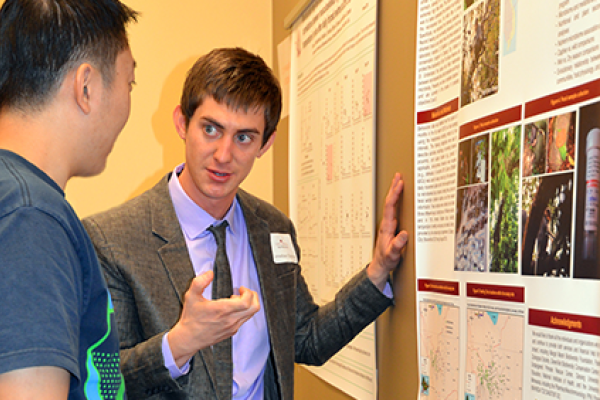
Ample research opportunities
Students work with faculty to research diseases like highly pathogenic avian influenza and porcine epidemic diarrhea virus, canine epilepsy, and equine myopathy. First and second year students who are interested in research are encouraged to participate in the Summer Scholars Program.
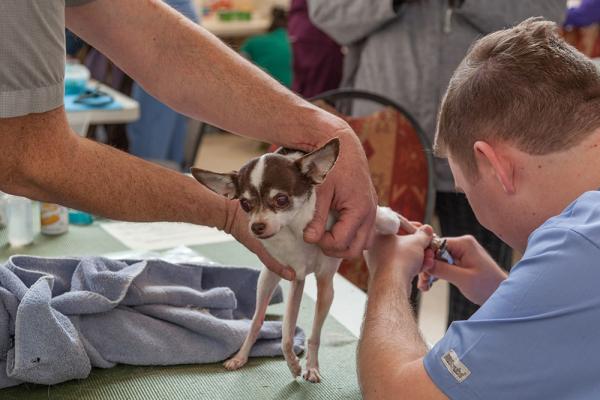
Community engagement through service learning
For over 10 years, the CVM has been improving access to veterinary care for underserved pets through partnerships with the Animal Humane Society (AHS), Minnesota-based rescues, and veterinary student-run free clinics. Our Community Medicine program equips future veterinarians with the tools and knowledge to advocate for clients, work conscientiously in resource-limited communities, and keep pets and families together.
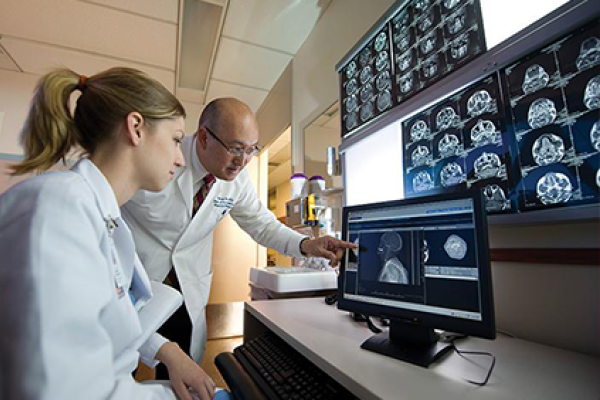
Collaboration among health science programs
We are proud to be part of the Health Sciences program at the University of Minnesota, where interdisciplinary health care expertise is developed between veterinary medicine and our partner programs in dentistry, pharmacy, human medicine, public health, nursing, and allied health care. Here, faculty across disciplines collaborate to solve critical health problems that impact animals and people.
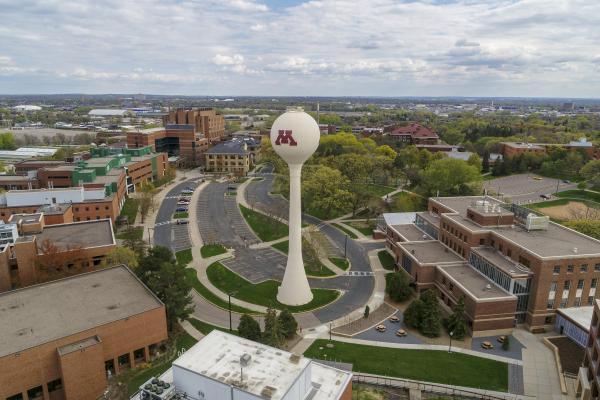
An ideal Twin Cities location
Our college is situated on the beautiful St. Paul campus, surrounded by experimental crop land, right in the heart of a vibrant city. Our urban location provides an extensive caseload at the Veterinary Medical Center, one of the largest teaching hospitals in the country treating over 35,000 cases per year. Yet rural agricultural land is just a short drive from campus, providing world class experiential learning opportunities at unique public/private partnerships with large production animal facilities. With a population of approximately 3 million people, the Twin Cities is one of the largest metropolitan areas to host a veterinary college.
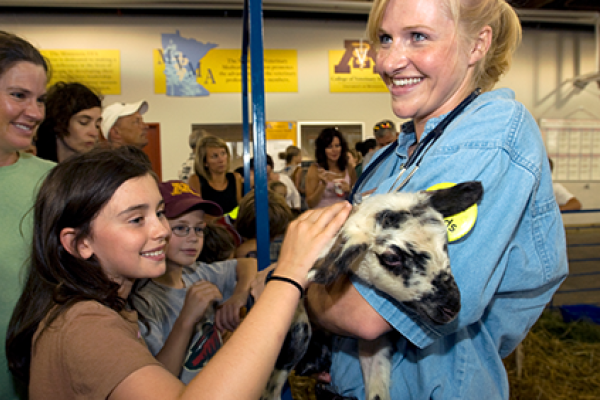
Unique student life
The GOALE orientation program helps DVM students begin their program by building community and leadership skills in small groups with faculty mentors. There are numerous ways to get involved outside the classroom, including participation in one of the many student organizations.
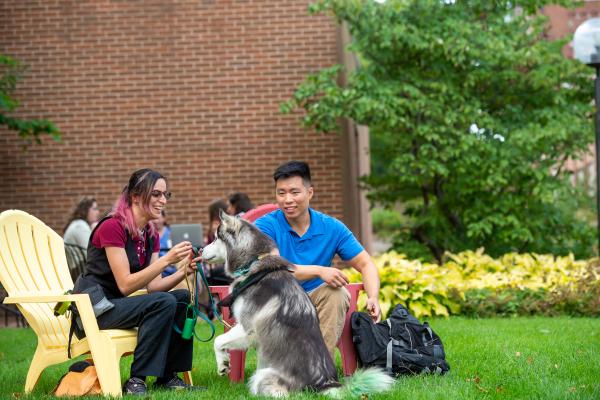
Student wellbeing and academic success
The College is committed to supporting student wellbeing in many ways, including embedded counseling resources, veterinary social work, and a wellbeing and student success director to lead student wellbeing initiatives. Learn more on our Wellbeing and academic success page.